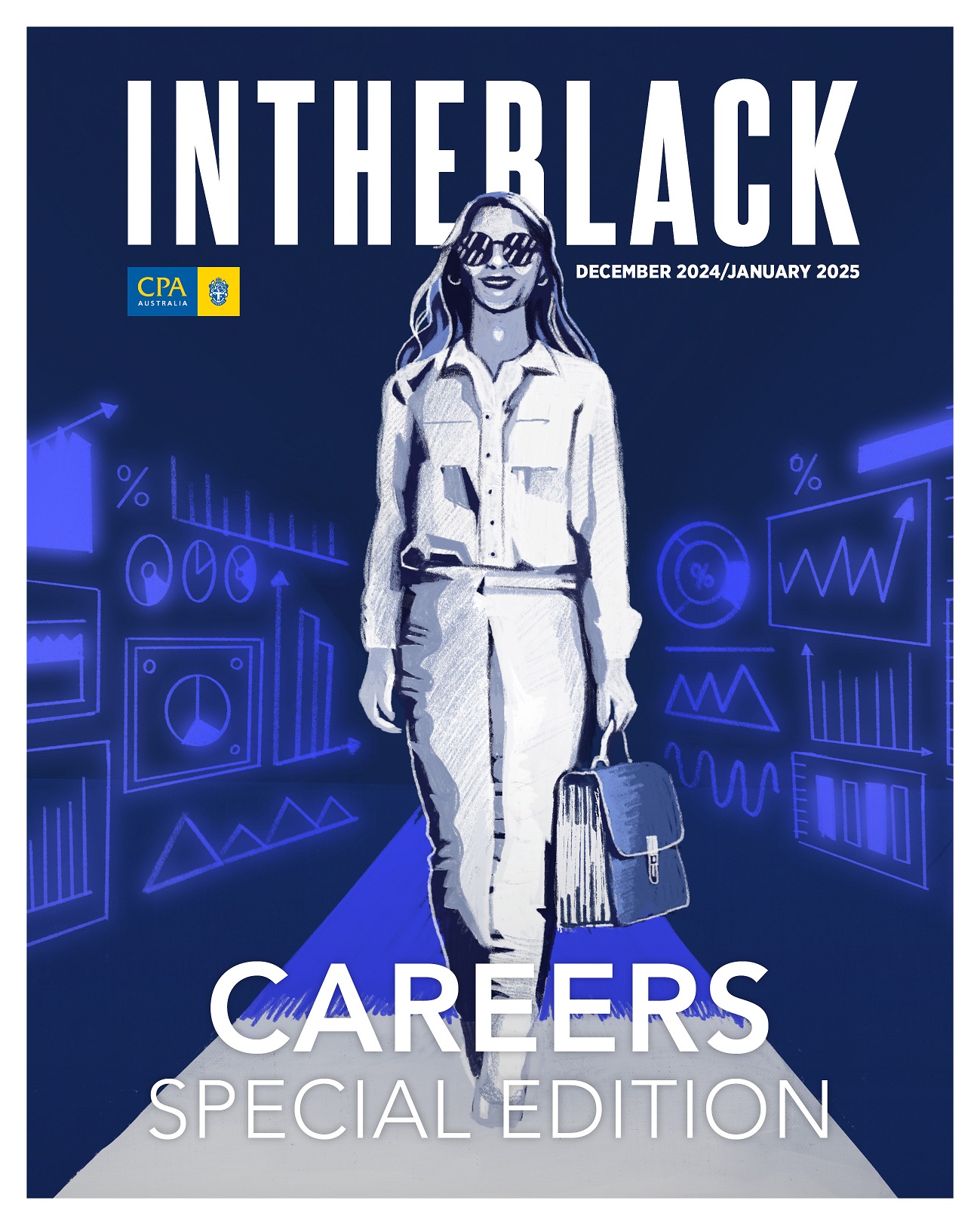Career crossroads: Six skills business professionals need in 2025
Content Summary

Australia’s leading professional accounting body, CPA Australia, has identified six key areas of skill and knowledge that business and finance professional will need in 2025.
“We’re seeing some strong career trends emerging, driven in part by new reporting requirements, a more complex regulatory landscape, and evolving technologies,” says CPA Australia’s Chief Learning and Innovation Officer, Dr Asheley Jones.
“Professionally, many individuals are at a crucial crossroads. They need to adapt to the changing landscape to ensure they maintain the career trajectory they want.
“Whether you're a graduate or seasoned C-suite executive, professionals who get ahead of the curve in developing the new skills they need to navigate evolving requirements will have a strong advantage in a competitive market for talent.”
CPA Australia’s award-winning business magazine INTHEBLACK has launched its December/January Careers special edition, focused on enriching professional development.
Here are the top six areas of skill needed in 2025:
ESG (Environmental, Sustainability and Governance)
Sustainability reporting presents a career boost opportunity for many business and finance professionals in 2025, but only if they are prepared and acquainted with the changes.
“With mandatory climate-related reporting for large organisations coming into effect from January 2025, and smaller businesses to follow in 2026, finance professionals should consider developing their sustainability expertise to advance their careers,” says Dr Jones.
“As companies seek to improve the measuring and reporting of their social and environmental impacts, expect to see increased demand for leadership roles that blend technology, strategy and sustainability skills.”
Data storytelling
“Data is becoming an increasingly powerful tool for businesses, and professionals will need to understand the story it is telling in order to provide companies with insights to plan, invest and develop targeted and sustainable goals,” says Dr Jones.
“The ability to use and manage financial data to identify trends and patterns will be in high demand in the new year and beyond.”
Technology literacy
“With technology revolutionising accounting at a breakneck speed, the ability to understand how to use it to bolster business efficiency and foster innovation will undoubtedly further your career prospects,” says Dr Jones.
“Analysing data has already been highlighted as a key skill needed in the latest World Economic Forum (WEF) Future of Jobs report. Proficiency in using new digital tools and data analytics platforms enhances efficiency and reduces risks.”
Critical thinking and problem solving
Critical thinking enables finance professionals to interpret data, identify trends, and draw conclusions to support business growth. This core problem-solving ability will play an increasingly valuable role for organisations moving forward.
“Even the best technological solutions are useless if you can’t interpret and communicate the data. Critical thinking and problem-solving skills are essential for evaluating risks and making decisions that are supported by data,” says Dr Jones.
“Finance professionals are experts at critically analysing data, but the technologies that deliver it are constantly evolving. Keeping pace with the tech and choosing the best tech to focus on are challenges.”
Artificial intelligence (AI)
As the saying goes, AI won’t take your job, but the people who can use it will’.
“Automation and AI will continue to transform the business and finance sector by simplifying processes and eliminating repetitive, time-consuming tasks. Individuals that have developed their proficiency and can manage digital tools effectively will be in greater demand than ever before,” says Dr Jones.
Ethics
“Individuals need to be equipped to deal with the ‘grey’ ethical dilemmas that can occur in real-world business decisions,” says Dr Jones. “Ethics must remain at the heart of business decisions, but what we mean by good ethics is expanding beyond what was previously considered.
“Understanding the responsible use of AI, including the importance of transparency, ensuring fairness, respecting privacy and enabling trust, will set the best accounting professionals apart from the pack.
“Accounting used to be focused on black-and-white thinking. With technology giving us access to more data than ever, it’s crucial that finance professionals understand strategies for implementing AI technology ethically and effectively.”
End-of-year personal development sale – up to 30% off online courses
CPA Australia’s Professional Development end-of-year sale is now on, with up to 30% off online courses and micro-credentials.
The festive season is a great time to catch up on your personal development and make sure you are equipped with the skills and knowledge you need to keep pace with other professionals going into a crucial year of increasing reporting standards and regulatory requirements.
Media contact
Simon Downes
External Affairs Lead
[email protected]
0401 461 503
Discover more
Paul Leroy
- Media
VIC Division Transcript 25 Sept 24
- Media
CPA Australia Podcasts
CPA Australia podcasts provide commentary and thought leadership across business, finance and accounting.
- Media
WA Member Snapshot - Abhi Singh CPA
In this initiative, we meet West Australian members and gain insights into their sector and their role. This month, we chat to Abhi Singh CPA from the Curtin University School of Accounting, Economics and Finance.
- Media
Member access onlyColin Mackenzie
- Media
Hongyu Feng
- Media